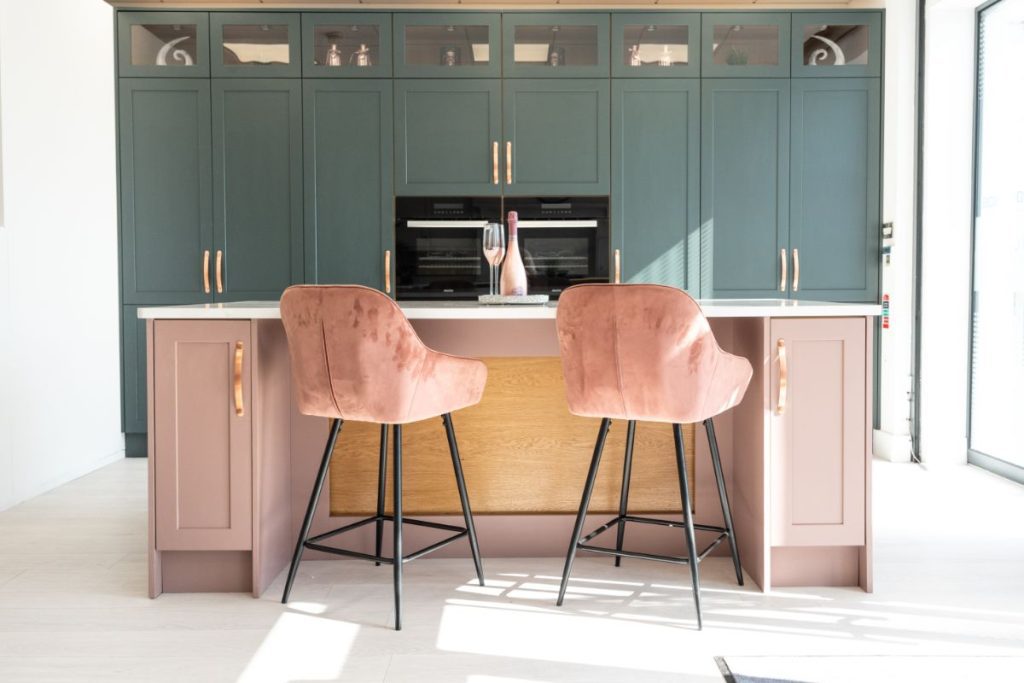The kitchen is the heart of any home, and designing a bespoke kitchen allows you to tailor every element to your specific needs and personal style. Whether you’re renovating your existing kitchen or starting from scratch, careful planning and attention to detail are crucial for achieving a kitchen that perfectly reflects your taste and enhances your daily living experience. In this blog, we will explore seven essential tips to help you navigate the exciting process of bespoke kitchen design.
- Define Your Vision: Before diving into the design process, take the time to define your vision for the kitchen. Consider your lifestyle, cooking habits, and preferences. Are you a gourmet chef or an occasional cook? Do you entertain frequently? Knowing how you plan to use the kitchen will inform the layout, appliances, and overall functionality of the space. Create a vision board or gather inspiration from magazines and online resources to help you clarify your style preferences and design goals.
- Plan the Layout: Efficient use of space is crucial in kitchen design. Consider the classic “work triangle” concept, which involves placing the refrigerator, sink, and stove in close proximity to optimize functionality. Take into account the workflow and ensure that essential areas are easily accessible. Whether you opt for a galley, U-shaped, L-shaped, or open-plan layout, careful planning will ensure smooth movement and a functional workspace.
- Custom Cabinetry: One of the highlights of a bespoke kitchen is the ability to customise cabinetry to fit your needs. Invest in high-quality, durable materials that will withstand daily use. Consider the storage requirements for your cookware, utensils, and appliances. Optimise storage with pull-out shelves, deep drawers, and built-in organisers. Incorporate clever solutions like corner cabinets with rotating shelves or vertical dividers to maximise every inch of space.
- Thoughtful Lighting: Lighting plays a crucial role in creating an inviting and functional kitchen. Combine different types of lighting to achieve the right ambiance and adequate task lighting. Consider natural light sources, such as windows and skylights, to brighten the space. Incorporate pendant lights over the kitchen island or dining area for an elegant touch. Install under-cabinet lighting to illuminate countertops and workspaces effectively.
- Selecting Appliances: Choosing the right appliances is essential for both functionality and style. Consider the size, capacity, and features of each appliance, ensuring they align with your cooking needs. Opt for energy-efficient models to save on utility bills and reduce your carbon footprint. If possible, integrate appliances seamlessly into cabinetry for a sleek and cohesive look.
- Materials and Finishes: Selecting the right materials and finishes will greatly impact the overall aesthetic of your bespoke kitchen. Choose durable and easy-to-clean worktops, such as granite or quartz, to withstand daily wear and tear. Explore a variety of flooring options, including tiles, hardwood, or polished concrete, based on your desired style and maintenance preferences. Coordinate the finishes of cabinetry, hardware, and fixtures to create a harmonious and visually appealing space.
- Seek Professional Guidance: While designing your bespoke kitchen can be a thrilling experience, it’s often beneficial to consult with a professional designer or kitchen specialist. They can offer expert advice, suggest innovative design solutions, and guide you through the decision-making process. Collaborating with a professional ensures that you consider all aspects of functionality, aesthetics, and budgetary constraints, ultimately resulting in a well-designed and personalised kitchen.
Conclusion: Designing a bespoke kitchen is an opportunity to create a space that is tailored to your needs and reflects your unique style. By following these seven essential tips, you can embark on the journey of designing your dream kitchen with confidence. Remember to define your vision, plan the layout thoughtfully

